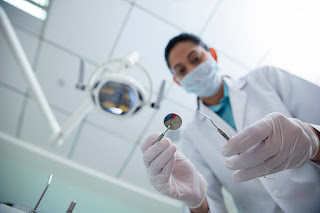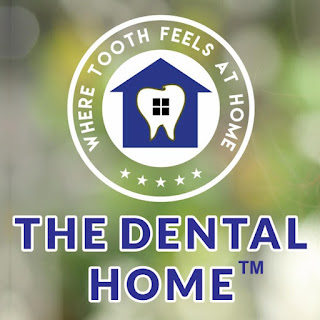7 Warning Signs You Might Need A Root Canal
Let's take a step back and review the procedure's definition and mechanism of action before we begin examining symptoms and indicators to decide whether you require a root canal. You will have a better understanding of the root canal's function and how it might alleviate your symptoms as a result.
The need for a root canal typically arises from a serious infection. Trauma to the tooth or an untreated cavity are also potential causes of this. This site frequently impacts the tooth's nerve, which can result in excruciating pain.
The infected tooth is opened up by the dentist during the surgery, and the "pulp," or rotting tissue, is completely removed. To eliminate any leftover bacteria, the dentist will also provide antibacterial medicine.
1. Dental Pain
You could notice an abrupt onset of excruciating pain and sensitivity when a tooth becomes infected. Instead of numerous teeth, this discomfort is frequently linked to just one tooth.
You could sense a subtle aching or a searing pain when you are uncomfortable. Additionally, if you touch the tooth, the pain will probably get worse.
2. Aches While Chewing
Pain that is exacerbated by chewing is another crucial indicator that you require a root canal. Similar to a cavity, consuming meals heavy in sugar may make your pain worse.
This might not be an issue if the discomfort you experience when chewing is relatively minimal. If pain is ongoing and gets severe, it is more concerning.
3. Intolerance to both heat and cold
Sensitivity to hot and cold temperatures is another typical indication that you need a root canal since infection and tooth decay can frequently impact the nerve at the middle of the tooth. Hot coffee and cold soda are two drinks that might hurt your tooth.
Once more, be aware of whether the soreness is with all of your teeth or just one in particular. You can only have sensitive teeth if all of your teeth are tender. If a particular tooth hurts, it might be a warning.
4. Sensitivity to gum
Once a tooth is infected, the infection may spread and start to harm other oral structures. You could see that the gums are swollen, sensitive, or red around the damaged tooth.
5. Gum Disease
Once the gum begins to exhibit signs of the tooth infection, it may start to develop an infection of its own. Canker sores or pus-filled blisters may appear on an infected gum. It will bleed when being brushed as well.
6. Discoloured Teeth
Another indication of tooth decay or an infection is discoloration. It may indicate a concern if a tooth starts to get browner than the teeth around it or develops a black area.
7. Zero symptoms
A tooth that has been infected typically exhibits observable symptoms. The discomfort brought on by infected teeth can be excruciating. Patients are frequently prompted by this to schedule a dentist visit.
However, sometimes an infected tooth might develop that doesn't even exhibit any symptoms. You might not experience pain or sensitivity if the infection is in the tooth but does not spread to the nerve.
As a result, it's crucial to consistently keep your planned dentist checkups. This is so that, in the absence of symptoms, an infected tooth can only be discovered using an x-ray. Your dentist will be able to tell if you are starting to develop tooth decay and whether you could require a root canal by taking dental x-rays once a year.
Consequently, if you start to feel the tooth pain mentioned above, that might mean your tooth has already been infected for a while. It is crucial to schedule a consultation as soon as you begin to feel discomfort so that it may be managed.
It is a good idea to visit a dentist to have your teeth analysed if you have started to experience one or more of these 7 symptoms. Set up an appointment with us right now to receive the care you require at the best dental clinic in Gurgaon.



Comments
Post a Comment